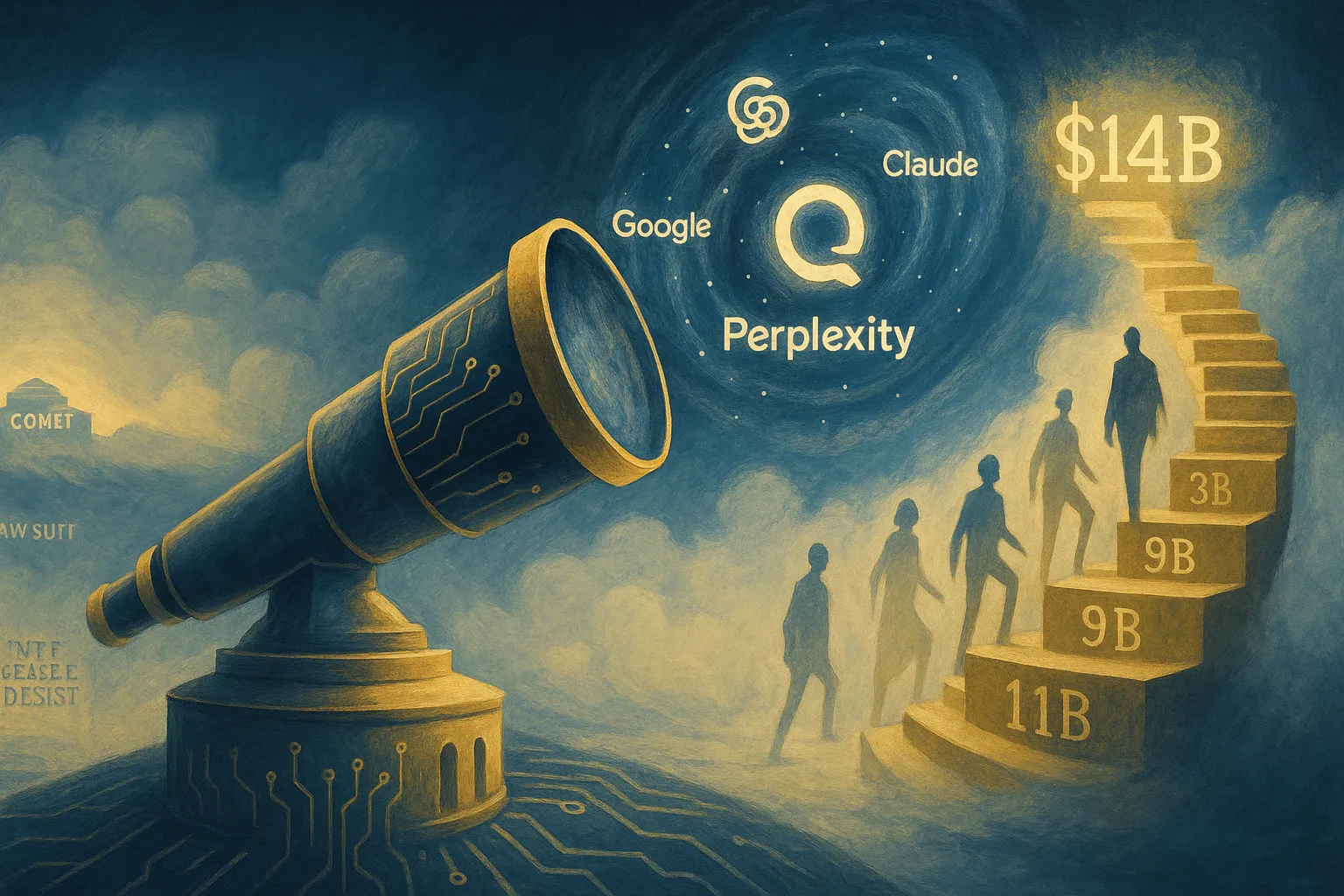Your browser already runs hostile code. Could it sandbox AI agents too?
Google's Paul Kinlan argues browsers' 30-year security model could sandbox AI agents without container overhead. Here's how Co-do proves the concept.
Perplexity AI, known for providing direct answers instead of traditional search links, is nearing a $14 billion valuation. Yet beneath the soaring numbers lies a pressing question: Can its novel approach truly reshape how we search the internet?

Perplexity AI is in advanced talks to raise $500 million, sources familiar with the discussions say. The deal would value the search startup at $14 billion - a notable jump from its $9 billion valuation last November.
Venture firm Accel is discussing leading the round, though the terms aren't final. The current talks reflect a scaled-back version of Perplexity's initial target of $1 billion at an $18 billion valuation.
The two-year-old company generates just under $100 million in annual recurring revenue. Its search tool provides direct answers with citations instead of traditional lists of links.
Signs suggest Google's search dominance might be slipping. Apple executive Eddie Cue recently reported that Google searches on Safari decreased for the first time in 20 years. Users are turning to AI tools like ChatGPT and Perplexity.
Apple has explored adding AI search features from Perplexity, OpenAI, and Anthropic to Safari. Google's stock fell 7% after news of these discussions emerged.
Perplexity plans to launch its own browser called Comet, potentially challenging Chrome and Safari. But the startup faces growing competition. OpenAI added search to ChatGPT last year, while Anthropic's Claude now offers web browsing.
Legal challenges loom. The Wall Street Journal's parent company has sued Perplexity, and The New York Times sent a cease-and-desist notice over content usage.
The company's valuation trajectory tells an interesting story. It started 2024 at $1 billion, reached $3 billion by summer, and hit $9 billion before year-end. If the current talks succeed, the value will have grown fourteen-fold in about a year.
Sources say Accel partner Sameer Gandhi would join Perplexity's board as part of the deal. Accel declined to comment, and Perplexity hasn't responded to requests for comment.
The investment talks come as traditional search faces its first serious challenge in decades. Google has responded with AI Overviews, though its rollout hit some snags. Microsoft backs OpenAI's efforts, while Amazon supports Anthropic.
Perplexity must prove it deserves its potential valuation. It needs to grow revenue, resolve publisher disputes, and compete with better-funded rivals. The planned browser launch adds complexity to an already ambitious plan.
Why this matters:
Get the 5-minute Silicon Valley AI briefing, every weekday morning — free.